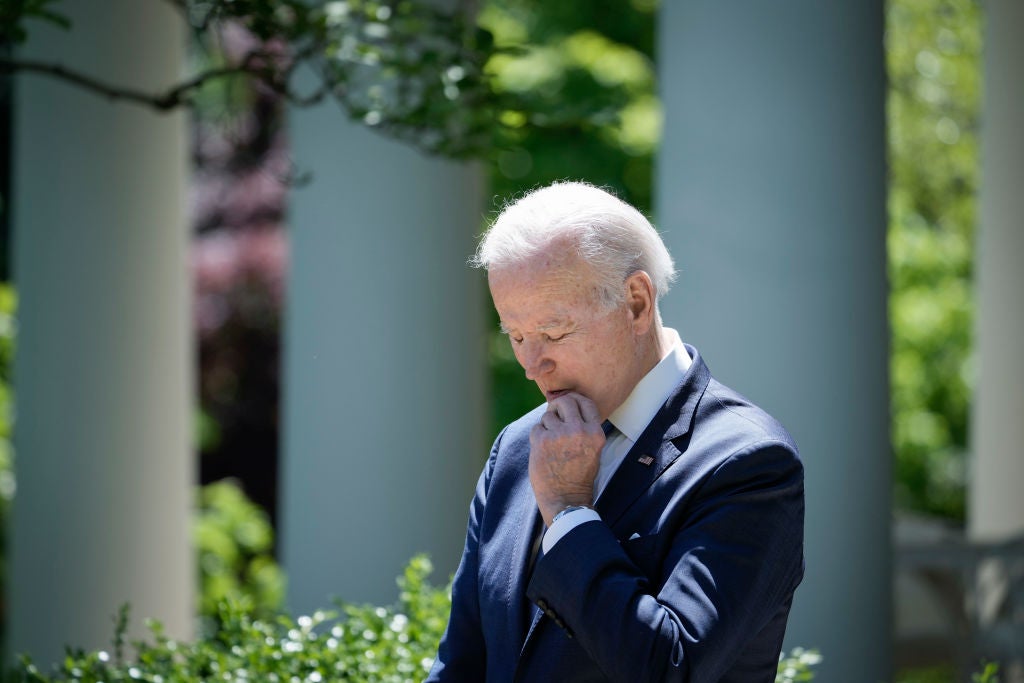
Speaking in Tokyo on 23 May, US President Joe Biden was asked whether a recession was inevitable. His response was a simple “no”, but he acknowledged that the US economy was facing severe difficulties. “This is going to be a haul,” the president told reporters. “This is going to take some time.”
The growing anxiety about the risk of a US recession comes after a series of sharp falls in the country’s stock markets. On 18 May, equities markets saw their worst day’s performance since the early months of the Covid-19 pandemic. The S&P 500 fell by 4%, while Nasdaq fell by 4.7%. The slide continued the following day, with S&P falling by a further 1.3%.
Stock markets have suffered a turbulent few weeks as investors weigh up the probability of a recession hitting the US economy.
Inflation has continued its rise to levels not seen in decades, eroding real income growth and shaking consumer confidence. While nominal consumer spending has continued its strong post-pandemic performance, this growth has been entirely eroded by rising prices in recent months.
Banks differ in opinions over likelihood of US recession
On 18 May, Wells Fargo became the first major US bank to forecast a recession within the next year. Its analysts now expect the US economy to contract by 1.3% over three quarters, a recession of similar depth to the 1990–91 downturn.
That warning came nearly a month after Deutsche Bank first warned that the US economy was heading for a “major recession” induced by rapid interest rate rises.
Not all analysts expect a recession this year. Goldman Sachs and Morgan Stanley have put the odds of a recession over the next year at 15% and 25%, respectively. Bond markets are even more sanguine, with the New York Federal Reserve’s yield curve-based analysis putting the odds of a recession in the next 12 months at just 6% – down from 10% in February and 20% in June 2021.
Surveys of businesses and consumers, however, paint a more worrying picture for the US economy. A consumer sentiment index maintained by the University of Michigan is now at its lowest level since 2011, while a CNBC poll in April found that 52% of Americans reported being under greater financial stress than a year before, with 53% cutting back on dining out and 39% on driving.
Businesses are feeling the consequences of this drop in consumer confidence. A poll of US manufacturing companies by the Federal Reserve Bank of Philadelphia in April found that just 37% expect future increases in their activity, compared with 29% that expect their activity to fall. That brings the bank’s Future Activity Index to its lowest level since 2008, at the height of the great financial crisis.
Fears of a recession have been heightened by the US Federal Reserve’s recent turn to monetary tightening. On 17 May, Federal Reserve chairman Jerome Powell said that he would “have to consider moving more aggressively” if recent rate hikes fail to bring down price rises. The war in Ukraine and a resurgence of Covid-19 in China have caused price rises to accelerate rapidly in recent months.



